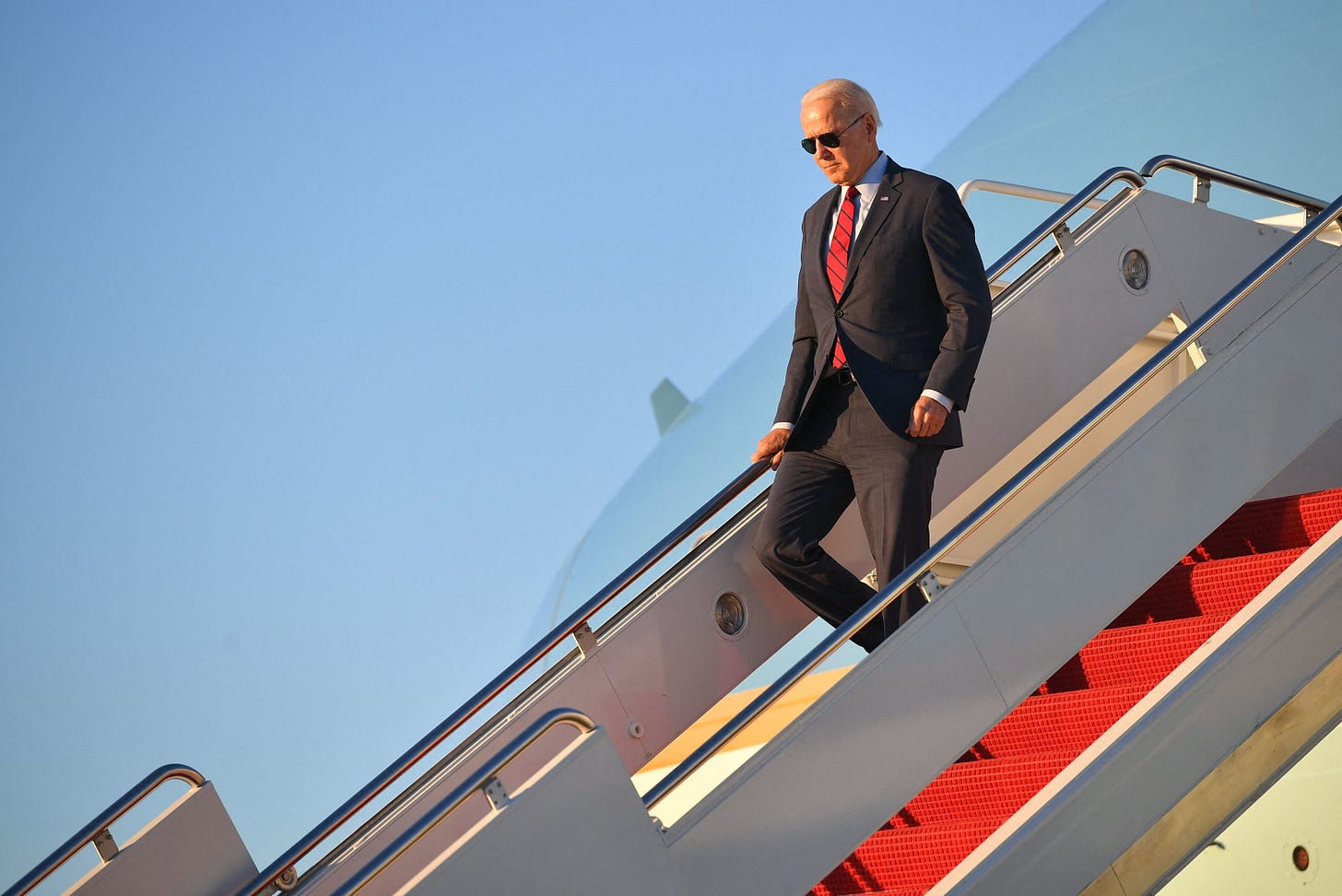Joe Biden: Iran Hawk?
Half a year into his presidency, he has ordered more strikes on Iran’s forces than Trump, Obama, W. Bush, Clinton, and H.W. Bush combined.

Among President Biden’s first foreign policy actions was a late-February attack on an Iran-backed militia in Syria. Shortly thereafter he called off a second strike because of concerns about civilian casualties. This past Sunday, though, Biden directed more strikes, this time against two targets in Syria and one in Iraq. With four strikes against Iran’s proxies, Biden has ordered twice the number of attacks on Iran that Presidents George H.W. Bush, Bill Clinton, George W. Bush, Barack Obama, and Donald Trump conducted combined.
Until the January 2020 killing of Qassem Soleimani, the only president who attacked Iran was Ronald Reagan, who sank six of Iran’s ships during Operation Praying Mantis in 1988, thereby destroying half the country’s navy. After the downing of an American unmanned aerial vehicle in international airspace in 2019, Trump aborted a plan to hit back and resorted to cyberattacks, out of fear of escalation. It was only during Trump’s last year that the United States finally conducted two strikes against Iran’s forces. In six months, Biden has doubled that number, even while negotiating an arms-control agreement with Iran.
Trump and Obama could both learn something from Biden’s negotiating strategy.
From a diplomatic point of view, Biden is signaling that Iran has to either take the deal or risk military strikes that will damage or destroy the country’s nuclear weapons facilities. This implicit ultimatum will strengthen the position of American diplomats, especially as the two sides seem to be at an impasse. Iran wants sanctions relief as a precondition to negotiations, and refuses to discuss its ballistic missile program. Biden has said that there will not be any significant sanctions relief until Iran returns to the terms of the Joint Comprehensive Plan of Action (JCPOA), and that Iran’s ballistic missiles should be a part of the new agreement.
In this case, as in so many, what’s bad for Iran and good for the United States is also good for Iraq. For domestic political purposes, the Iraqi government complained about the U.S. attack as a violation of its sovereignty. Prime Minister Mustafa al-Kadhimi, barely hanging onto power, has to keep his coalition together, especially ahead of the October parliamentary elections. Kadhimi is a well-intentioned and, so far, capable reformer—the first in Iraq’s history. Behind the scenes, he has been quite pleased by American attacks against forces loyal to Iran which have been destroying his country. Kadhimi ascended to the premiership against Iran’s objections, and he has been trying to diminish Iran’s influence in Iraq and cleanse his country of its eastern neighbor’s proxies, especially the People’s Mobilization Forces (PMF), which his predecessor, Haider al-Abadi, incorporated into Iraq’s security forces, even though the PMF still takes its orders from Iran.
Already a skeptic of the JCPOA during the Obama administration’s negotiations, Jake Sullivan, now President Biden’s national security advisor, is said to have been disillusioned by Iran’s behavior after signing the agreement, which was supposed to make Iran a responsible actor in the region but instead intensified Iran’s aggression. In the first days of the administration, Sullivan affirmed this rumor, suggesting that the administration wanted to put the nuclear weapons problem in a box so they could move onto other problems with Iran. Biden’s military strikes against Iran-backed militias suggest that Iran should not count on a long leash, with or without a deal.
The one danger the Biden administration is creating for itself is that it may be raising expectations for a new deal while giving both sides less reason to enter one. Any new deal that would strengthen Iran’s economy would allow it to slow or reverse its recent military cuts, which were an indirect result of the strict sanctions regime. Putting Iran’s nuclear program “in a box” without the use of force that won’t result in further regional destabilization is a paradox that the administration has to deal with.









